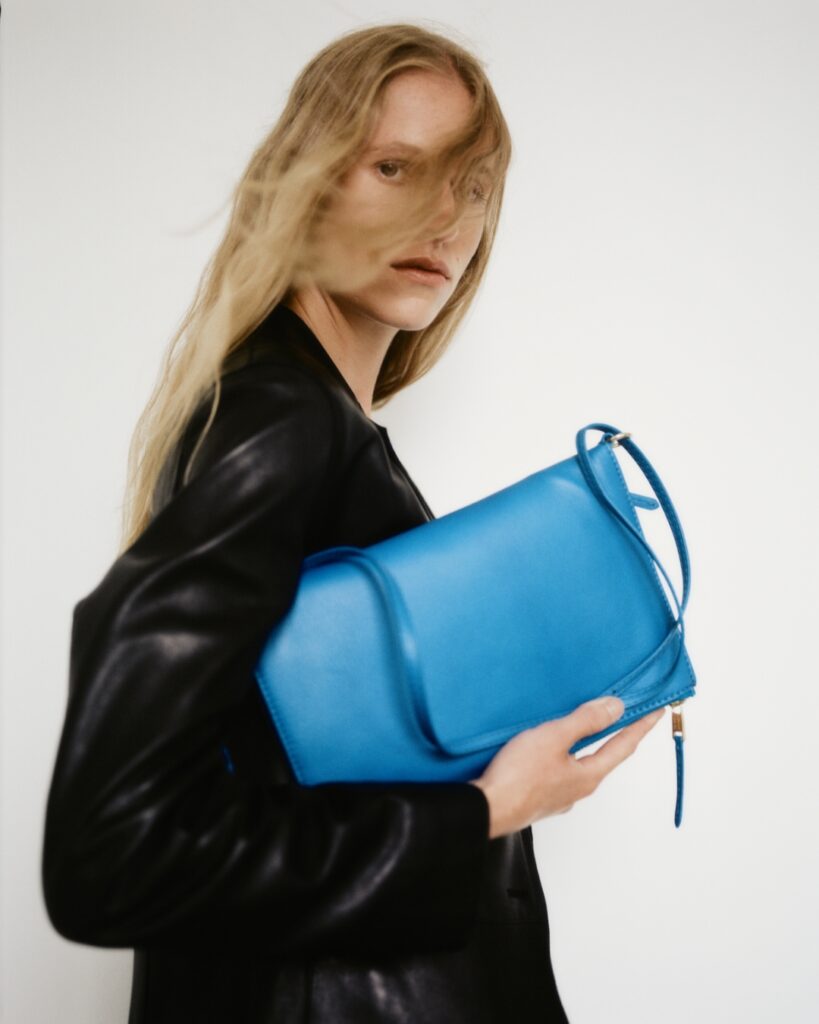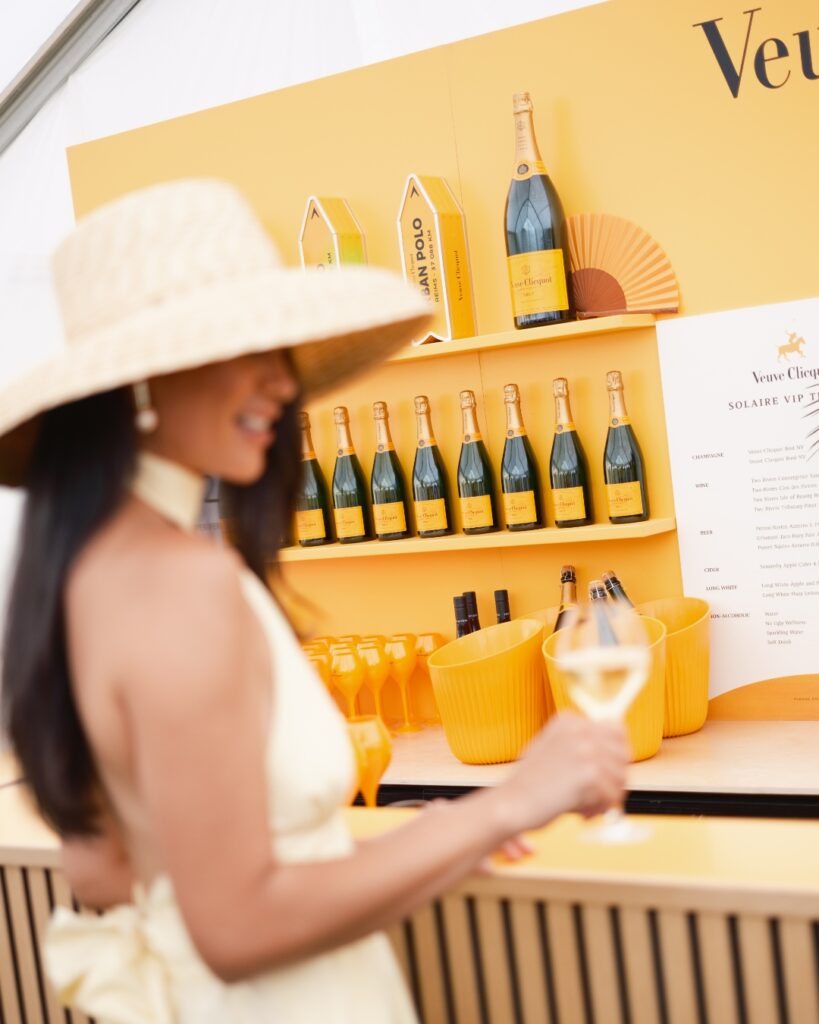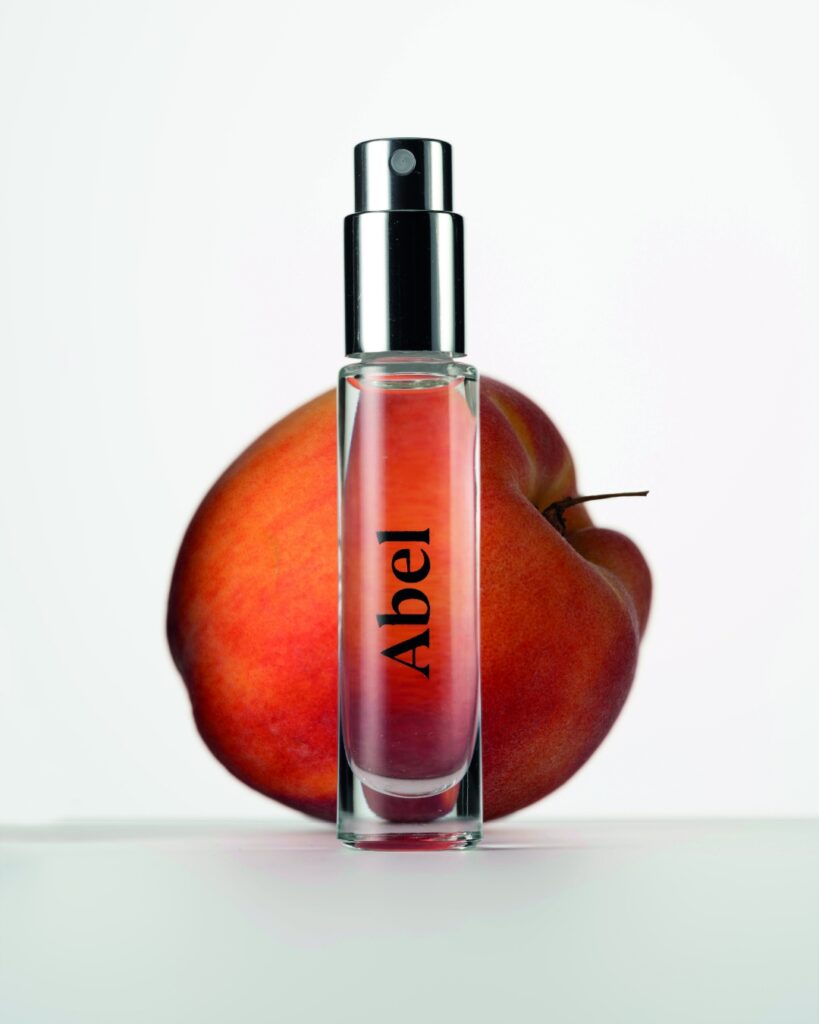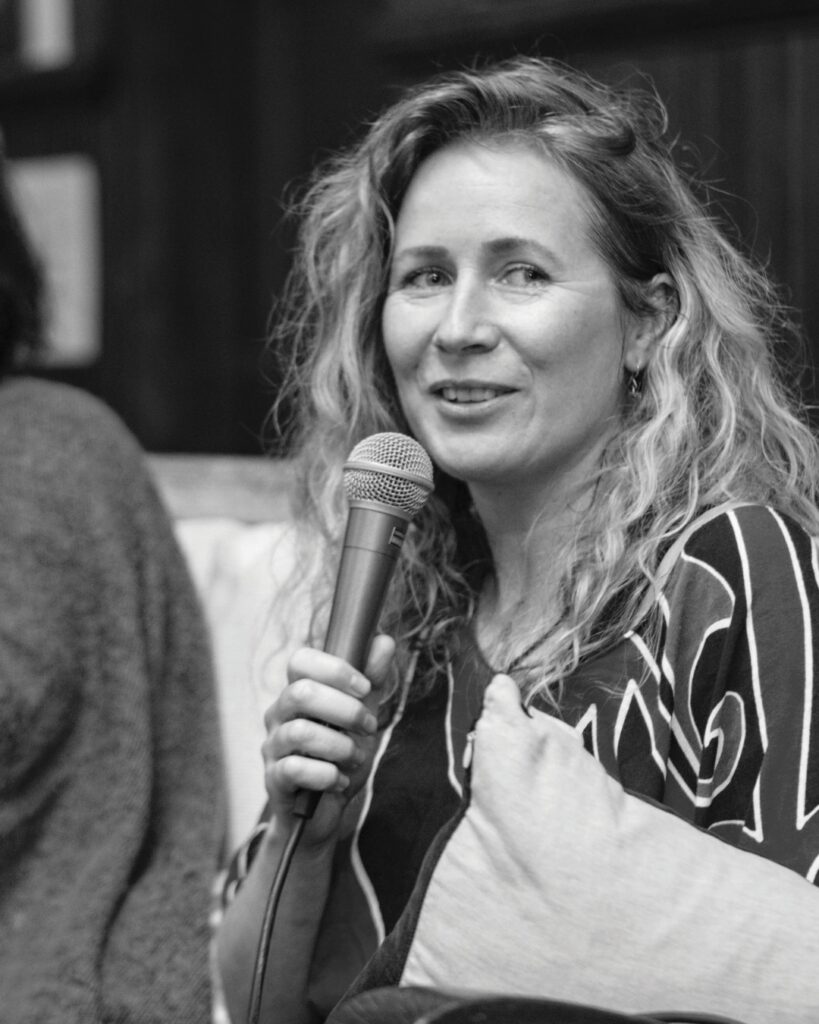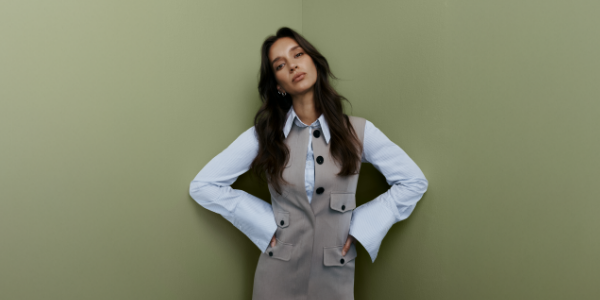
There’s a fantasy almost everyone’s been holding onto since the pandemic began: the end of it — a return to normalcy, the real world, when we’ll be able to resume life as we knew it. We’ve all seen the memes and heard the conversations: in the northern hemisphere, this year’s summer was supposed to be a Hot Girl one, made for socialising, dancing, dating and re-entering society. Everywhere you look, it feels as if people are ready to slam their Netflix-playing laptops shut and swap their sweatpants for miniskirts. If Miu Miu’s recent Paris Fashion Week show was anything to go by, those minis will likely be low-rise.
But in lieu of the freedom we hoped for at the start of 2021, the virus had other plans. Cities moved in and out of lockdown, giving many a taste of post-pandemic life before it was quickly retracted. Millions took to social media to share their desperation for the year we’d been promised, whereas others were surprised to realise they felt differently. As the end of their lockdown loomed, they felt their stress level rise at the thought of a busy social schedule or return to the office. Some were left wondering if the fast-paced way they used to live really was something they were excited about reverting to.
“I’d be lying if I said the idea of going to parties and being in huge groups doesn’t ignite total anxiety,” says Poppy, who lives in Auckland. “As a twenty-something who in normal circumstances tends to work very hard and play equally hard Friday through Saturday, I’ve felt unmotivated, with less energy for both work and socialising.”
Twenty-six-year-old Queensland resident Caitlin gets it. She says the way the pandemic has altered her personality has been drastic. Since it began, she’s developed severe social anxiety, which she puts down to spending less time with friends and more time alone.
“That combined with restaurant time limits and factoring in that everyone we know is struggling has hugely impacted how anxious I get,” she says. “I leave every single event, even if it’s just a dinner at a friend’s house, overthinking everything I said or forgot to say. It’s awful!”
Isabelle, a 20-year-old student living in Wellington, feels the same. “I’ve become really introverted, and although I do think being introspective is part of my personality, I haven’t made a single friend since I moved cities for university, which I think is due to the pandemic happening at such a pivotal point in my life. It’s manifested in massive social anxiety.”
She might have missed out on the drunken nights on Cuba Street that often accompany one’s first year living in New Zealand’s capital city, but she says she’s found a silver lining. “At the same time, I’m also really grateful for the amount of alone time I’ve had, because I’ve delved into this intensive self-discovery that I don’t think would have happened if I had a thriving social life like I’m supposed to at this age.”
Introvert or extrovert?
Identifying as an introvert or an extrovert has become as common a self-diagnosis as that of star-sign personality traits. Popularised by psychoanalyst Carl Jung in 1921, the definitions of these polar opposites haven’t changed much in the decades since. Thought to be outgoing and love spending time with a lot of people, extroverts look to the outside world, while introverts direct their attention inwards; social interaction is said to energise extroverts and drain introverts. In recent years, people have begun combining the ideas, deeming themselves to be an introverted extrovert or vice versa.
For some, the pandemic was the prompt they needed to re-evaluate their self-perception. Twenty-five-year-old Ash, from Brisbane, says the increased isolation during lockdown made her realise she’s more introverted than she thought. “In the past two years, I’ve paid much closer attention to how people actually make me feel,” she says. “The truth is that as much as I adore socialising, I often come away feeling tired. I’ve realised that I actually have a strong preference for one-on-one hangouts over group situations in most contexts.”
This resonates with 29-year-old Kiwi Liv, who found that instead of feeling excited at the thought of lockdown lifting in Christchurch, she felt stressed. “I thought I was an extrovert but I was constantly exhausted. Covid-19 and lockdown made me realise I’m actually the opposite. Slowing down, reading and spending time by myself has made me feel so refreshed and recharged. Now, I’ve changed the way I communicate with friends and family in the sense that I’m pretty clear on my boundaries and so much more comfortable saying, ‘I’m too tired to do that’.”
In our fast-paced society, it’s easy to get caught in a routine of booking up weeknights and weekends, and feeling guilty if you’re not ‘making the most’ of life, like everyone else seems to be doing at the latest hotspot on Instagram. But removing the expectations we’ve put in place for ourselves and that others put on us has, for some, led to a new way of life.
“I believed I was intrinsically lazy and that without the structure of office life and gym classes, I’d stay in bed all day,” says 36-year-old Sydneysider Clara. “Actually, I found the opposite to be true, and that I’m pretty disciplined and feel happiest when I follow a relaxed routine — getting up at the same time every day, doing regular exercise and slowing down. Lockdown made me far more in tune with myself and more confident about what I want, and has been a pretty positive experience for me overall.”
Others I spoke to not only realised that they’re more introverted than they once thought, but also that they’d been putting too much time and energy into friendships that didn’t benefit them. The pandemic reoriented our attention and redefined the limits of who and what we should care about. It also put into focus who would be there when the chips are down and who was just there out of convenience — the Good Time Friends, as I’ve dubbed one former bestie I haven’t spoken to in close
to 18 months after they showcased their lack of care when times got tough.
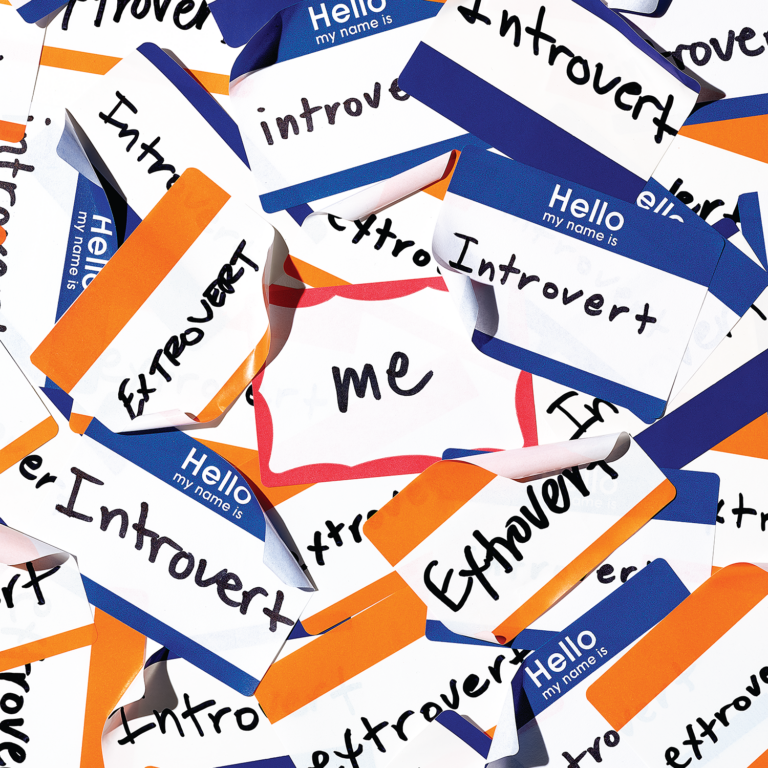
“I realised I was investing in friendships with people who were not going to reciprocate,” says Arielle, who’s also ditched some Good Time Friends. “The pandemic prompted me to think about my priorities, and I now plan on being a lot more abrupt and cut-throat than I thought I ever could be.”
Poppy feels the same. “The biggest thing for me so far has been realising which friends leave me feeling happy and energised after a conversation, and which leave me feeling drained and anxious, for reasons I can’t always put my finger on.”
The end of the ‘Girl Boss’?
This change in our values isn’t limited to friendship. Many women have realised that the hustle mentality around work isn’t actually something that aligns with their values or makes them happy. The end of the era of the Girl Boss is upon us, and Man Repeller founder Leandra Medine, Away co-founder Steph Korey, and even the OG Girl Boss Sophia Amoruso are just some of the female CEOs who in the past 18 months have been found to be far less #inspirational in real life than they made out online.
At the same time, there’s been a shift in the way women view work. It seems as if somewhere along the line, work became conflated with feminism — something no doubt quietly encouraged by those benefiting most from the structures of capitalism and extra workhorses in the office. Now, many women I know are going through the process of untangling it all and working out their identity when it’s not tied to their income.
“Covid really made me rethink my priorities, values and career goals,” says 27-year-old Melburnian Holly. “The most significant change for me has been moving away from a successful career in the fashion industry towards working in the not-for-profit space.”
Some have reduced their workload to part-time hours so they can spend more time with their families. The Atlantic recently published an article about women who are “leaning out”, which cites a study that found a third of American mothers are considering “downshifting” their careers or pulling out of the workforce. The data marks the first time in six years that the researchers have found women expressing such a strong interest in working less.
Sydney mother-of-two Annie had recently given birth to her second child when she was offered a permanent position at a company she loved — a dream job. But after a few months, she realised that despite how good her new role looked on paper, it wasn’t fulfilling her like she thought it would.
“By the time Sydney’s second lockdown began, I’d quit,” she says. “I made the decision for a lot of reasons: because I was pumping milk in the parent room and crying every day; because my toddler, long used to having me around all the time, was asking me when I was going to stop working ‘so much’; because I had that sinking feeling that I’d chosen the wrong job at the wrong time in my life because I’d thought I had something to prove. The past 18 months have really helped me let go of some attachments I had, like achieving things by a certain age, and that life, career and success is some kind of one-size-fits-all, linear thing. I also realised that I don’t want to define myself only by work or success but by other things too, like trying to be a good mother and a present friend, and that I like reading and baking.”
Who are we now?
So has the pandemic really changed us, or has it just made us realise what we truly craved all along? For much of psychology’s history, our personality — the characteristic patterns of thinking, feeling and behaving that form each person’s unique identity — was considered set in stone by early adulthood. Research over the past few decades, however, has led to a consensus that although personality traits are relatively stable, they’re not completely fixed. Instead, they continue to evolve throughout life.
“A large body of research suggests that both genes and environmental factors contribute to personality development across the lifespan,” says Dr Wiebke Bleidorn, a psychologist at the Personality Change Laboratory at the University of California. This means it’s completely feasible that something as unprecedented and life-altering as the pandemic could have impacted the way we think, act and feel long-term. Whether it has is difficult to determine, not least because we’ve all experienced the pandemic differently (the women I spoke to about work were aware of how privileged they were to even have the option to question their careers).
“There’s a lot of ongoing research trying to address this question,” says Dr Bleidorn. In a study that looked at students’ personality measures over six months during 2020 compared to the same time period in 2019, she and her researchers found that the pandemic had negative effects on young adults’ emotional and relationship experiences. However, the study found no effects on participants’ personality traits.
“This finding is consistent with theories that emphasise the stability of personality during unexpected or non-normative life events,” says Dr Bleidorn. “Such life events typically don’t come with clear scripts or norms that define how to react and behave. People are thus more likely to rely on their personality, a situation that would accentuate stable individual differences rather than pulling for certain changes.”
Dr Bleidorn is currently conducting a study to see how the pandemic could have altered people’s self-concept clarity, a term used to describe the extent to which people know who they are. “A silver lining of the pandemic is that we’re now able to take stock of the ways we want to work, communicate and interact with each other,” she says. “Some of the things we learned during this time are very likely here to stay.”
Fingers crossed that includes ditching toxic friendships, prioritising play and our loved ones over work, and keeping the Netflix binges going despite the lure of the Hot Girl Summer, if that’s what we’d truly prefer.
This article was originally published in the Fashion Quarterly Summer 2022 issue.


